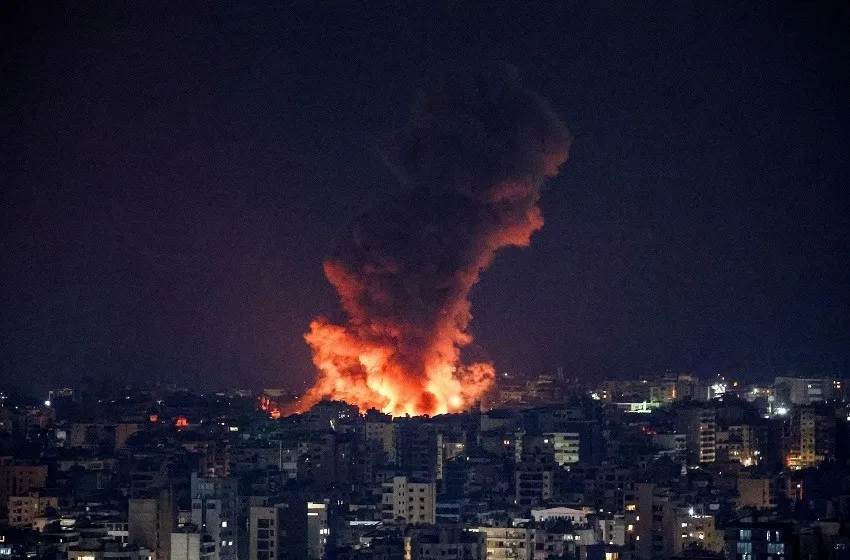In the heaviest bombardment so far, Israeli strikes have heavily targeted Beirut, escalating the ongoing conflict. This intensification raises concerns about the regional implications and the international response it may provoke. Delve into the details of the strikes and the broader geopolitical impact in this unfolding situation.
Beirut /Jerusalem - Israeli airstrikes pounded Beirut's southern suburbs overnight and early Sunday (Oct. 6) in the most intense bombardment of the Lebanese capital since Israel sharply escalated its campaign against the Iran-backed group Hezbollah last month.
The blasts sent booms across Beirut throughout the night, creating flashes of red and white visible from several kilometers away for nearly 30 minutes.
Witnesses and military analysts on local TV channels described this as the single largest attack on Beirut in Israel's ongoing assault.
On Sunday, a grey haze hung over the city, and rubble littered the streets of the southern suburbs, while smoke columns rose from the area.
Last night was the most violent of all the previous nights. Buildings were shaking around us, and at first, I thought it was an earthquake. There were dozens of strikes - we couldn't count them all - and the sounds were deafening, said Hanan Abdullah, a resident of the Burj al-Barajneh area in Beirut's southern suburbs.
Videos posted on social media, which Habertalya could not immediately verify, showed fresh damage to the highway running from Beirut airport through its southern suburbs into downtown.
Israel stated that its air force had "conducted a series of targeted strikes on a number of weapons storage facilities and terrorist infrastructure sites belonging to the Hezbollah terrorist organization in the area of Beirut."
Lebanese authorities did not immediately comment on what the missiles had hit or the extent of the damage caused.
This weekend's intense bombardment came just ahead of the anniversary of the Oct. 7 attack by the Palestinian militant group Hamas on southern Israel, in which an estimated 1,200 people were killed and over 250 taken hostage, according to Israeli figures.
The target of Israel's airstrikes across Lebanon and its ground invasion in the south of the country is Hezbollah, Iran's chief ally in the region.
Over 2,000 people have been killed in nearly a year of fighting, with most of the casualties occurring in the past two weeks, according to the Lebanese health ministry. The ministry reported 23 deaths on Saturday.
The United Nations' refugee chief stated on Sunday that there were "many instances" where Israeli airstrikes had violated international law by hitting civilian infrastructure and killing civilians in Lebanon.
Israel claims it targets military capabilities and takes steps to minimize harm to civilians, while Lebanese authorities assert that civilians have been targeted. Israel accuses both Hezbollah and Hamas of hiding among civilians, which they deny.



































